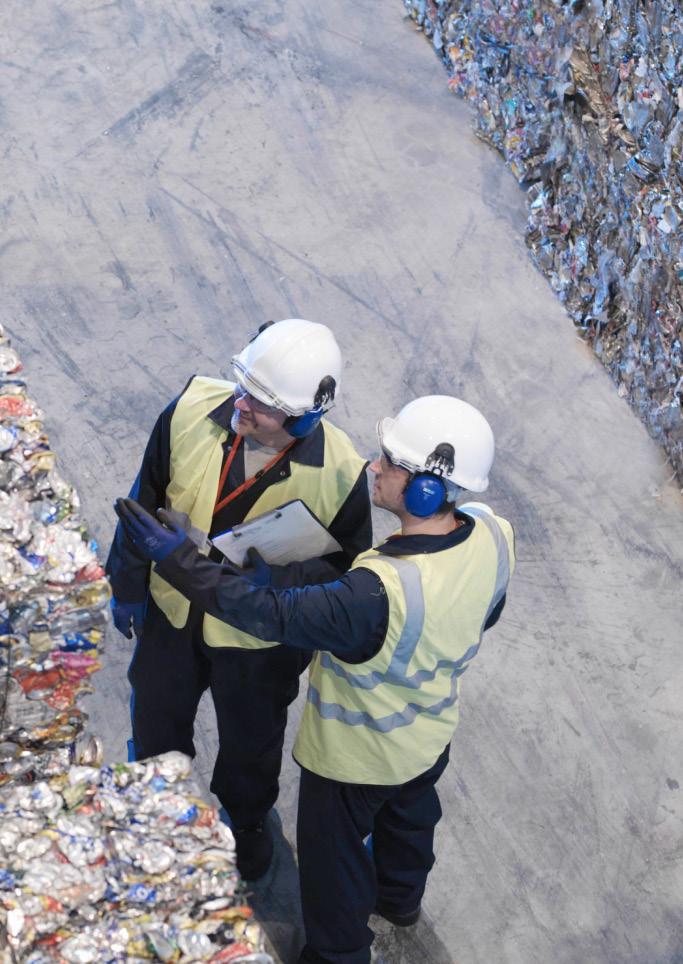

REVOLUTIONISING SUSTAINABILITY WITH EVAN J. SCHWARTZ
REVOLUTIONISING SUSTAINABILITY WITH EVAN J. SCHWARTZ
In a time of rapid technological change and increasing environmental responsibility, AMCS Group has emerged as a leader in the field of sustainable resource management. At the forefront of this transformation is Evan J. Schwartz, the company’s Chief Innovation Officer, whose leadership is helping to shape the future of the sector.
Schwartz has been instrumental in driving the company’s technological advances, which now play a crucial role in reducing waste, optimising operations, and promoting sustainability. In this editorial, we explore Schwartz’s career journey, the company’s innovations, and how AMCS is leading the charge towards a more circular and sustainable future.
Evan J. Schwartz’s path to leadership at AMCS Group began early. As a teenager, Schwartz founded a software start-up at the age of 16, creating graphical scripting tools for the early bulletin-board industry. It was during this formative period that Schwartz first encountered the power of technology and entrepreneurship, which has since become a driving force throughout his career.
AMCS PROJECT DIRECTED BY: VERITY KAY

AMCS Chief Innovation Officer
Evan J. Schwartz
Reflecting on his early experiences, Schwartz identifies three core principles that have guided his professional journey: curiosity-driven innovation, measurable customer value, and servant leadership. “From the very start, I was driven by these principles, and they remain my guiding lights today,” he says.
Schwartz’s dedication to innovation has led to significant advancements at AMCS Group, particularly in the development of the company’s cloud-native platform and AI-driven solutions. However, Schwartz also stresses that customer value is always at the core of his approach. Whether in his previous roles as Chief Enterprise Architect, Chief Operating Officer for North America, or as Chief Innovation Officer, Schwartz’s primary test for any initiative is whether it can deliver quantifiable benefits for customers.
“My focus has always been on turning ideas into frameworks that deliver tangible gains, whether that’s in terms of margin, safety, or sustainability for our clients,” Schwartz explains.
A key aspect of Schwartz’s leadership philosophy is his commitment to servant leadership, which places the growth and well-being of his team at the forefront. In addition to his role at AMCS, Schwartz teaches applied data mining at Jacksonville University, ensuring that he stays connected with future leaders. “Mentoring future leaders is an important part of staying grounded,” he adds. “It also helps to cultivate a culture at AMCS that is collaborative, inclusive, and focused on making a real-world impact.”
Sustainability has become a key concern for businesses across the globe, and


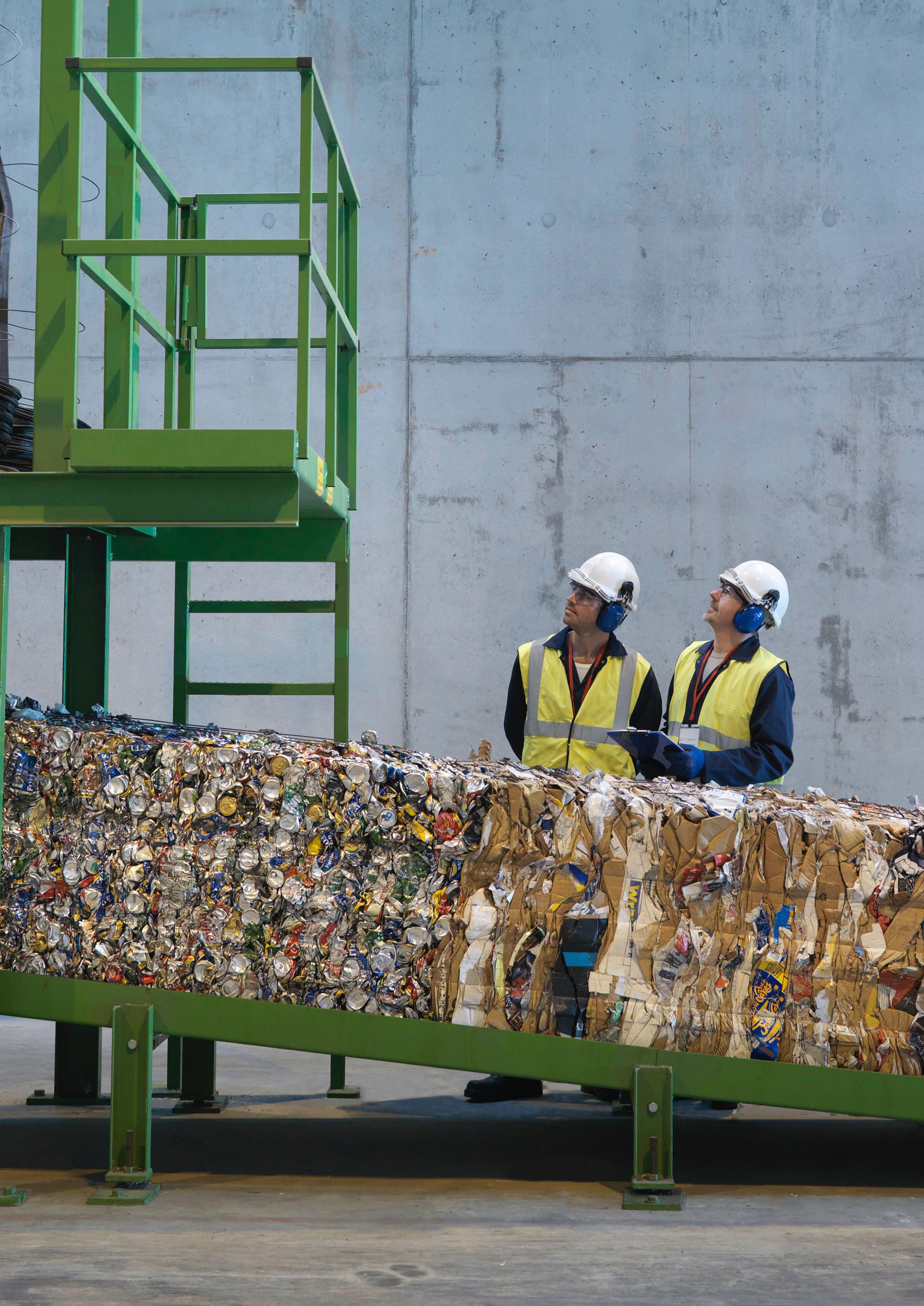
Schedule a strategy call today!



Schwartz believes that true digital sustainability is about using data, AI, and cloud automation to decouple resource consumption from economic growth. This principle is at the heart of AMCS’s mission, and it shapes the company’s product offerings and strategic direction.
AMCS Named a Global Leader in ESG & Sustainability
In recognition of its ongoing leadership in sustainability, AMCS was recently named a global leader in ESG & Sustainability by Verdantix, an independent research firm. AMCS was recognised as a Leader in the Green Quadrant for ESG & Sustainability Reporting Software 2025, a testament to its robust capabilities and innovation in addressing complex sustainability and regulatory requirements. This achievement places AMCS among the top software vendors worldwide and highlights its comprehensive data management, user adoption, and assurance-ready workflows, reinforcing the company's commitment to helping businesses achieve true digital sustainability.
“True digital sustainability is about using technology in a disciplined way to reduce resource consumption while driving growth,” Schwartz explains. In practice, this involves several key elements, including:
Data Integrity at Scale:
AMCS’s cloudbased platform provides a single, centralised source of truth for data on material flows, costs, and carbon emissions, ensuring that businesses can make informed decisions based on accurate, real-time information.
Embedded Optimisation: Through
its Route Optimisation suite, AMCS uses algorithms to reduce CO₂ emissions, mileage, and energy consumption. Schwartz points out that the technology can cut CO₂, miles, and drive-time by between 5 and 25% while reducing planning overhead by as much as 75%.
Real-Time ESG Orchestration:
AMCS has integrated environmental, social, and governance (ESG) modules into its platform, helping clients generate auditready reports and predictive insights. This approach moves beyond after-the-fact

spreadsheets, enabling businesses to act proactively rather than reactively.
Economic
Validation: Schwartz stresses that sustainability and profitability are not mutually exclusive. “Sustainability must also be profitable,” he insists. “Aligning sustainability with a company’s bottom line ensures that it becomes a strategic priority, rather than a cost centre.”
One of the key ways AMCS is driving sustainability is through its support for the circular economy. The company’s technology allows businesses to track and manage material flows across the entire value chain, from waste collection through to recycling and re-entry into the market.
“Our SaaS platform spans a range of functions, from enterprise management and route optimisation to MRF (Material Recovery Facility) operations, trading, sourcing, and settlement,” Schwartz explains. “This means that waste can be reclassified as feedstock at every stage of its journey, creating a seamless and transparent circular flow.”
AI-driven scheduling and fleet optimisation also play an essential role in enhancing the efficiency of the circular economy. Schwartz highlights AMCS’s recent acquisition of Qv21 Technologies, which enables the company to optimise bulk haul operations. “This helps ensure that recovered materials reach the right processor with minimal empty miles, reducing both cost and carbon impact.”
Furthermore, AMCS’s ESG solution helps clients model Scope 1-3 emissions and water impacts, enabling businesses to design products for reuse and closed-loop recycling.
Achieving a balance between profitability and sustainability can be a significant challenge for businesses, but Schwartz believes it is essential. AMCS’s software helps clients achieve both by integrating sustainability into their day-to-day operations.
“Our platform combines carbon and compliance data in one place, automating data capture in line with key regulatory frameworks such as the Corporate Sustainability Reporting Directive (CSRD),
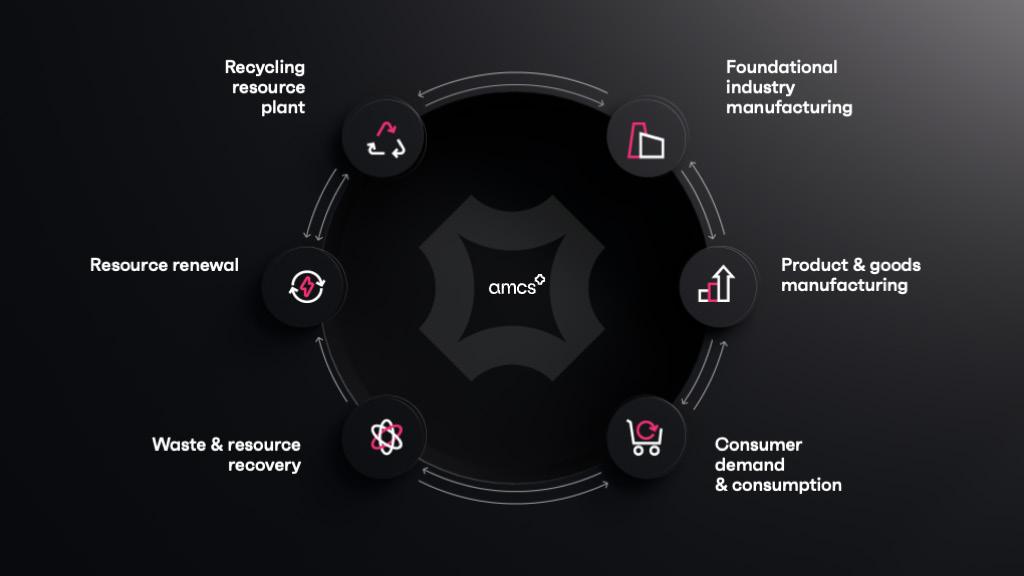

SEC climate rules, and the International Sustainability Standards Board (ISSB),” Schwartz explains. This makes it easier for companies to comply with increasingly stringent regulations while also driving efficiencies.
In addition, AMCS’s operational modules, including those for route optimisation, fleet maintenance, and asset life extension, help reduce operating costs (OpEx) and embodied carbon simultaneously. “For example, fewer trucks and longer service intervals help reduce both operational costs and carbon emissions,” Schwartz adds.
AMCS’s financial dashboards provide further insight, showing how each ton diverted or kilometre saved contributes directly to EBITDA, making the business case for sustainability even stronger.
AMCS has significantly enhanced its capabilities through strategic acquisitions, which have allowed the company to expand its technology stack and accelerate innovation. Schwartz describes the convergence of technologies as a key driver of the company’s success. “Customers are no longer looking for
point tools—they need a unified platform where safety, carbon data, and logistics all interact seamlessly,” he says.
Acquiring companies such as Quentic (EHSQ), FigBytes (ESG), Dossier (fleet maintenance), and Qv21 (bulk haul optimisation) has enabled AMCS to compress years of research and development into just a few months. “By acquiring these companies, we’ve been able to integrate their expertise into our platform, which has enhanced the data graph and unlocked new insights for our customers,” Schwartz explains.
Each acquisition has contributed valuable data, helping AMCS identify areas of inefficiency and opportunity within customers’ operations. “CO₂ emissions are always a key indicator for optimisation,” Schwartz notes, adding that safety is another critical area for improvement. “We use this data not just for reporting but for providing actionable insights that drive efficiencies within our customers’ organisations.”
Looking to the future, Schwartz sees several important trends emerging within resource-intensive industries and
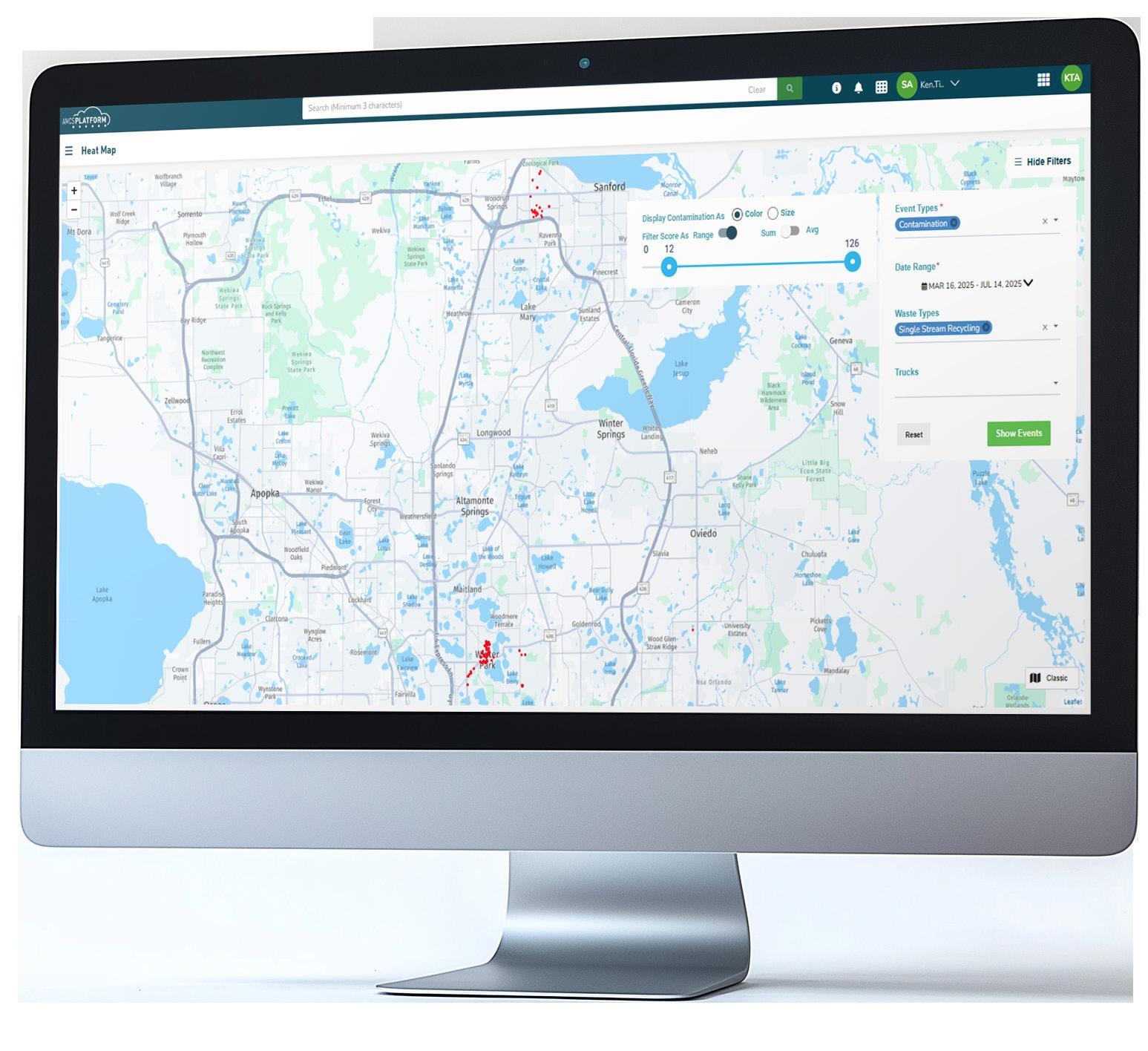
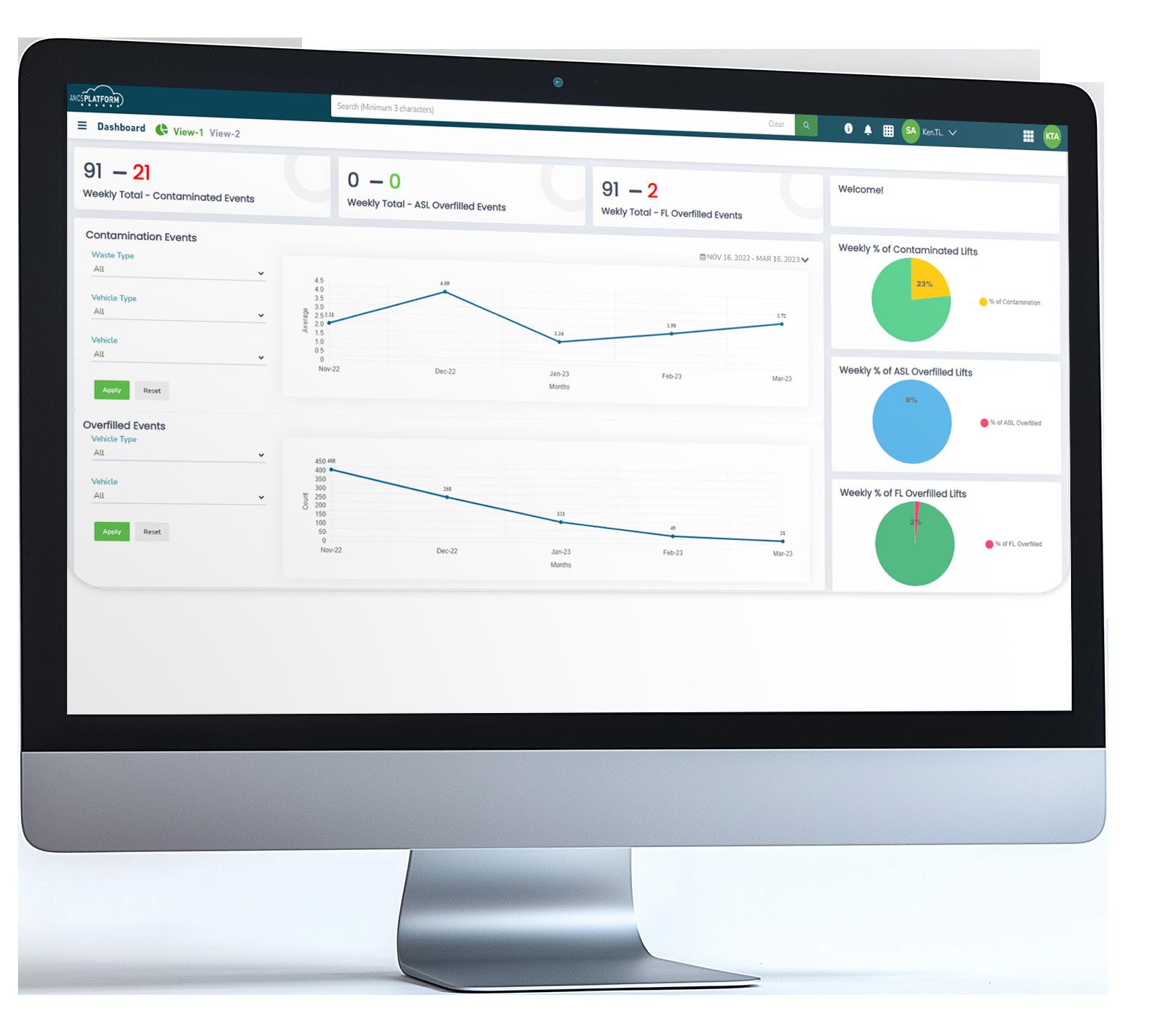
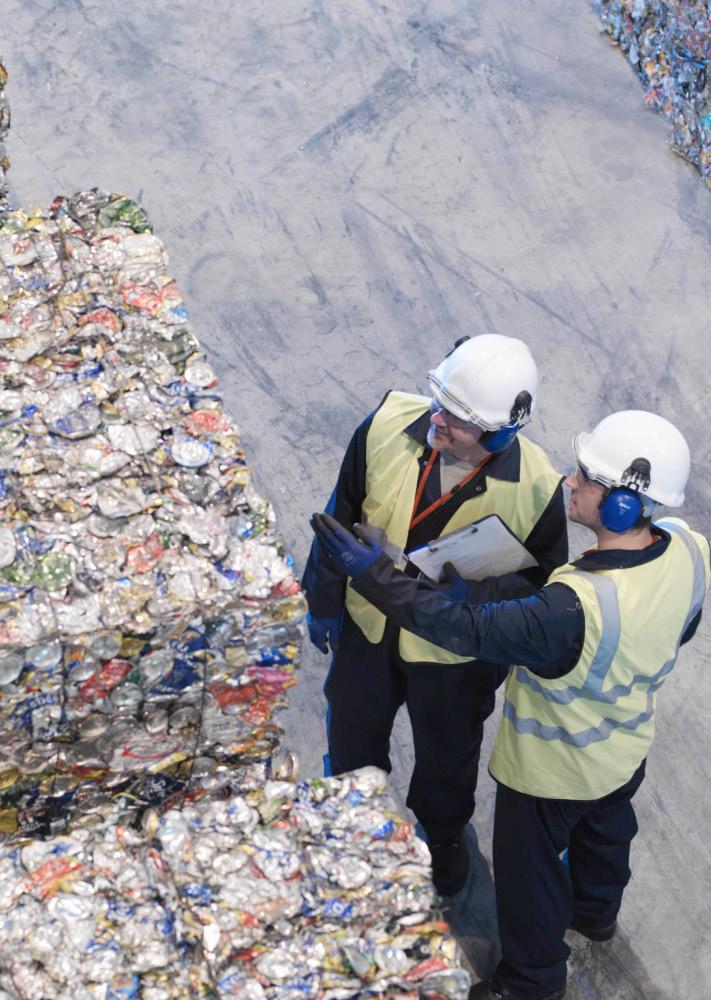

sustainability technology. In the next few years (1-3 years), AI-first optimisation and digital twins will become more widespread. These technologies will enable businesses to create real-time, self-healing logistics systems that can adapt to traffic, weather, and market conditions.
Regulatory pressure will continue to shape the sector, with carbon reporting and circular economy initiatives becoming more mainstream over the next 1-5 years. “Regulations such as CSRD, SEC climate rules, and product-passport mandates will force businesses to adopt auditable Scope 3 data pipelines,” Schwartz predicts.
Further ahead (3-7 years), autonomous collections and robotics will become more prevalent in operations like material recovery facilities and scrap yards, driven by labour shortages and safety goals. And in the longer term (5-10 years), advanced recycling and AI-powered commodity trading will redefine the concept of waste, turning it into a valuable resource.
Schwartz points to several examples of AMCS’s solutions driving real-world change. One such example involved a customer who used AMCS’s Route Optimisation technology to reduce CO₂ emissions and service times. By optimising routes for just 13 vehicles in one region, the customer saved $3 million annually in fuel, maintenance, and operational costs. Scaling this approach to the company’s global fleet of 170,000 vehicles shows the enormous impact that AMCS’s solutions can have on both the environment and the bottom line.
As Schwartz points out, the time has come for businesses to rethink their recycling strategies. Regulatory changes, economic pressures, and evolving consumer expectations are all compelling companies
to extract greater value from by-products and waste.
“Global extended producer responsibility (EPR) schemes and mandatory climate disclosures are turning waste and recycling data into a compliance issue for boards,” Schwartz explains. “Additionally, economic pressures, such as volatile energy and commodity prices, reward firms that are able to extract value from by-products.”
Schwartz argues that businesses can successfully balance financial performance with sustainable practices by embedding sustainability directly into their profit and loss (P&L) drivers. “Treat waste reduction, fuel savings, and safety as direct margin levers,” he advises.
AMCS is committed to leading the way in digital sustainability. The company’s innovations, such as the AI-powered Circular Insights Hub and Vision AI for contamination detection, demonstrate AMCS’s continued focus on driving efficiencies and reducing environmental impact.
“AMCS’s goal is to couple breakthrough digital capabilities with a rigorous economic proof to ensure that every ton of material, every kilometre of transport, and every joule of energy contributes to both profit and the planet,” Schwartz concludes.
As the global push for sustainability continues to gain momentum, AMCS is helping businesses integrate innovation and sustainability to meet the challenges of today and tomorrow. By combining technological expertise with a clear focus on environmental and economic outcomes, AMCS is setting the standard for the future of resource management.
www.amcsgroup.com
